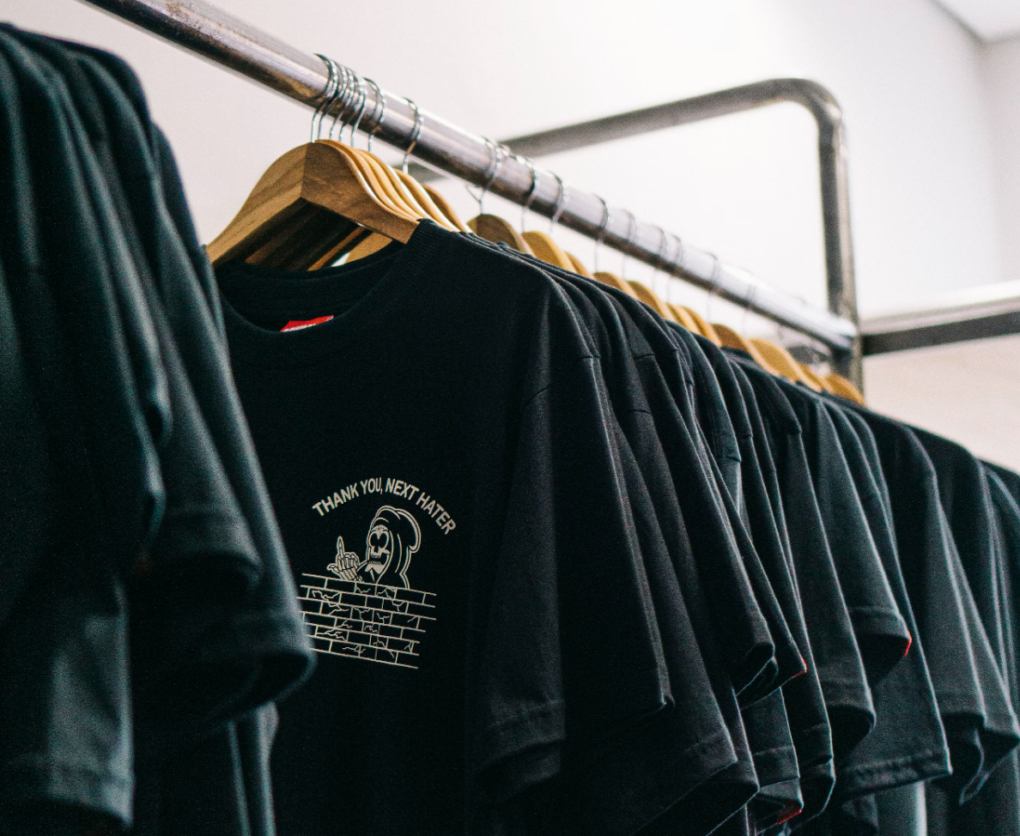Navigating The Wholesale Clothing Landscape: A Guide For Businesses Without A Tax ID
Navigating the Wholesale Clothing Landscape: A Guide for Businesses Without a Tax ID
Related Articles: Navigating the Wholesale Clothing Landscape: A Guide for Businesses Without a Tax ID
Introduction
With enthusiasm, let’s navigate through the intriguing topic related to Navigating the Wholesale Clothing Landscape: A Guide for Businesses Without a Tax ID. Let’s weave interesting information and offer fresh perspectives to the readers.
Table of Content
Navigating the Wholesale Clothing Landscape: A Guide for Businesses Without a Tax ID

The world of wholesale clothing offers a vast array of opportunities for businesses looking to source high-quality garments at competitive prices. However, navigating this complex landscape can be daunting, particularly for entities that lack a tax identification number (TIN). This article aims to provide a comprehensive guide for businesses operating without a TIN, outlining the challenges they face, the strategies they can employ, and the potential benefits they can reap.
Understanding the Role of a Tax ID in Wholesale Transactions
A tax identification number, also known as an Employer Identification Number (EIN) in the United States, serves as a unique identifier for businesses. It is crucial for various financial transactions, including:
- Tax Reporting: The IRS uses the TIN to track business income and expenses for tax purposes.
- Sales Tax Collection: Businesses with a TIN are typically required to collect sales tax from customers and remit it to the relevant authorities.
- Wholesale Transactions: Most wholesale suppliers require a TIN for verifying the legitimacy of their business partners and ensuring compliance with tax regulations.
Challenges Faced by Businesses Without a TIN
Operating without a TIN presents significant challenges for businesses seeking to engage in wholesale clothing transactions:
- Limited Access to Suppliers: Many wholesale suppliers, especially established ones, have stringent policies requiring a TIN for conducting business. This significantly limits the sourcing options for businesses without a TIN.
- Higher Costs: Sourcing from smaller, less established suppliers might be necessary for businesses without a TIN. These suppliers may offer less competitive pricing and may lack the infrastructure for efficient order fulfillment.
- Compliance Risks: Operating without a TIN can expose businesses to legal and financial risks, particularly regarding tax obligations.
Strategies for Businesses Without a TIN
Despite the challenges, businesses without a TIN can leverage several strategies to navigate the wholesale clothing landscape:
- Focus on Smaller Suppliers: Smaller suppliers, particularly those operating online, may be more flexible in their requirements and willing to work with businesses without a TIN.
- Seek Out Distributors: Distributors act as intermediaries between manufacturers and retailers, often offering lower minimum order quantities and more flexible payment terms, making them an attractive option for businesses without a TIN.
- Explore Direct-to-Consumer Models: By selling directly to consumers, businesses can bypass the wholesale market altogether, eliminating the need for a TIN in many cases.
- Consider Partnerships: Collaborating with established businesses that have a TIN can provide access to wholesale markets and resources, potentially mitigating the challenges associated with operating without a TIN.
Potential Benefits of Operating Without a TIN
While operating without a TIN presents challenges, it also offers certain advantages:
- Lower Overhead Costs: Businesses without a TIN can avoid the costs associated with obtaining and maintaining a TIN, such as application fees and compliance requirements.
- Increased Flexibility: Without the constraints of a traditional business structure, businesses can operate with greater flexibility, adapting to market demands and evolving customer preferences more readily.
- Focus on Niche Markets: By targeting specific customer segments and offering unique products or services, businesses can build a strong brand identity and compete effectively in niche markets, even without a TIN.
FAQs: Addressing Common Concerns
Q: Is it legal to operate a business without a TIN?
A: While it is legal to operate a business without a TIN, certain activities, such as engaging in wholesale transactions, may require one for tax compliance and regulatory purposes.
Q: What are the legal implications of operating without a TIN?
A: Operating without a TIN when required can lead to penalties and fines from tax authorities. Additionally, it may hinder access to certain business opportunities and financial services.
Q: How can I access wholesale clothing without a TIN?
A: While accessing traditional wholesale markets might be challenging, exploring smaller suppliers, distributors, direct-to-consumer models, and partnerships can provide alternative avenues for sourcing wholesale clothing.
Q: Should I consider obtaining a TIN for my business?
A: If your business plans to engage in wholesale transactions or grow significantly, obtaining a TIN is highly recommended. It provides legal protection, enhances credibility, and facilitates access to wider market opportunities.
Tips for Businesses Operating Without a TIN
- Build Strong Relationships: Develop close relationships with suppliers, distributors, and other business partners to foster trust and secure reliable sourcing options.
- Focus on Customer Service: Provide exceptional customer service to build a loyal customer base and maintain a positive reputation, even without the advantages of a traditional wholesale setup.
- Embrace Technology: Utilize e-commerce platforms, social media marketing, and other digital tools to reach a wider audience and streamline operations.
- Stay Informed: Keep abreast of changes in tax regulations and industry trends to adapt your business practices and stay competitive.
Conclusion: Embracing Opportunities in the Wholesale Clothing Landscape
Operating without a TIN in the wholesale clothing market presents unique challenges and opportunities. By understanding the complexities, embracing innovative strategies, and leveraging the advantages of a flexible business model, businesses can navigate this landscape successfully. While obtaining a TIN may be beneficial for long-term growth, focusing on niche markets, building strong relationships, and utilizing technology can enable businesses to thrive even without a traditional business structure. Ultimately, success lies in adapting to the evolving dynamics of the wholesale clothing market and embracing the opportunities it offers, regardless of the presence of a TIN.

![How to Start a Wholesale Clothing Business Online in [2022] - I Blogs Hub](https://iblogshub.com/wp-content/uploads/2021/12/how-to-start-a-wholesale-clothing-business-online.jpg)






Closure
Thus, we hope this article has provided valuable insights into Navigating the Wholesale Clothing Landscape: A Guide for Businesses Without a Tax ID. We appreciate your attention to our article. See you in our next article!
You may also like
Recent Posts
- Shaping The Homes Of Tomorrow: Home Decor Trends For 2025
- Navigating The Evolving Landscape Of Home Decor Trends: A Comprehensive Guide
- Weaving History And Home: A Guide To Unique Vintage Farmhouse Decor
- The Enduring Appeal Of Wooden Duck Home Decor: A Timeless Symbol Of Nature And Serenity
- Beyond The Ordinary: A Guide To Unique Home Decor Accessories
- Navigating The Fast Fashion Landscape: Exploring Alternatives To SHEIN
- A Global Network Of Home Improvement: The Reach Of The Home Depot
- Finding The Perfect Pieces: A Guide To Home Decor Shopping
Leave a Reply